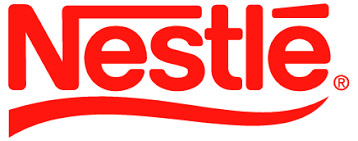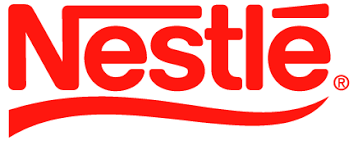
Nestle has an announced policy of its intention to reduce its weakness in packaged foods. And to fulfill this strategy imperative, Nestle is all set to buy out Canadian vitamin maker Atrium Innovations for an estimated value of $2.3 billion.
This deal would will help Nestle to expand its presence in the consumer healthcare segment.
A group of investors that is led by Permira Funds now holds majority stake of Atrium, the maker of vitamins, probiotics and meal replacements, and Nestle would be buying out the company from this group, announced the world’s largest packaged food company.
Even after the deal, there is enough room for Nestle to seek to buy out other companies. This is because Atrium is primarily active in the U.S. market and almost 80 percent of the company’s sales is generated from that market. Therefore, Nestle has the option of making other purchases in other parts of the world. One example is the German company Merck whole vitamins unit is up for sale. The company has a large presence in emerging markets and sources have said that Nestle is also looking out for that purchase as well.
“We continue to look for opportunities in things that make sense in very disciplined fashion,” said Greg Behar, head of Nestle Health Science, the division that will house Atrium Innovations.
Nestle has an established ambition to become a “nutrition, health and wellness” firm because it has seen slow sale for packaged food due to changing consumer tastes even as Nestle Health Science is already operational in the nutritional products segment targeted for people with specific medical conditions.
This year, activist shareholder Third Point had created huge pressure on Nestle to make drastic improvements in returns and therefore, the maker of Gerber baby food, Purina pet food and Nescafe coffee has bene trying to cope up with that pressure. Since that pressure was implied, the company has made three other small acquisitions, and has announced a margin target and a share buyback.
Behar said that there would be immediate earnings to the company revenues after the completion of the purchase of Atrium because the company is expected to have total sale of $700 million this year. Earlier in the year, Nestle’s new chief executive, Mark Schneider, had identified the consumer health segment as a strategic priority for the company and this deal is reflective of those comments made by Schneider.
“They’ve been trying to articulate a message around Nestle Health Science and health and wellness for some time,” Liberum analyst Robert Waldschmidt said. “In terms of nutrition, this makes sense.”
There are seven factories of Atrium in the United States, Canada, Europe and Argentina. Garden of Life supplements is the biggest brand of the company.
In the last few months, the purchase of Atrium is Nestle’s fourth. In September, purchase deals for Sweet Earth vegetarian foods and Blue Bottle coffee were announced by the company while Chameleon Cold-Brew coffee acquisition was announced in November.
It is expected that the first quarter of 2018 would be the time when the purchase of Atrium would be completed.
Atrium was advised by Morgan Stanley, RBC Capital Markets and William Hood & Co, a division of AXIA Capital Markets.
(Source:www.reuters.com)
This deal would will help Nestle to expand its presence in the consumer healthcare segment.
A group of investors that is led by Permira Funds now holds majority stake of Atrium, the maker of vitamins, probiotics and meal replacements, and Nestle would be buying out the company from this group, announced the world’s largest packaged food company.
Even after the deal, there is enough room for Nestle to seek to buy out other companies. This is because Atrium is primarily active in the U.S. market and almost 80 percent of the company’s sales is generated from that market. Therefore, Nestle has the option of making other purchases in other parts of the world. One example is the German company Merck whole vitamins unit is up for sale. The company has a large presence in emerging markets and sources have said that Nestle is also looking out for that purchase as well.
“We continue to look for opportunities in things that make sense in very disciplined fashion,” said Greg Behar, head of Nestle Health Science, the division that will house Atrium Innovations.
Nestle has an established ambition to become a “nutrition, health and wellness” firm because it has seen slow sale for packaged food due to changing consumer tastes even as Nestle Health Science is already operational in the nutritional products segment targeted for people with specific medical conditions.
This year, activist shareholder Third Point had created huge pressure on Nestle to make drastic improvements in returns and therefore, the maker of Gerber baby food, Purina pet food and Nescafe coffee has bene trying to cope up with that pressure. Since that pressure was implied, the company has made three other small acquisitions, and has announced a margin target and a share buyback.
Behar said that there would be immediate earnings to the company revenues after the completion of the purchase of Atrium because the company is expected to have total sale of $700 million this year. Earlier in the year, Nestle’s new chief executive, Mark Schneider, had identified the consumer health segment as a strategic priority for the company and this deal is reflective of those comments made by Schneider.
“They’ve been trying to articulate a message around Nestle Health Science and health and wellness for some time,” Liberum analyst Robert Waldschmidt said. “In terms of nutrition, this makes sense.”
There are seven factories of Atrium in the United States, Canada, Europe and Argentina. Garden of Life supplements is the biggest brand of the company.
In the last few months, the purchase of Atrium is Nestle’s fourth. In September, purchase deals for Sweet Earth vegetarian foods and Blue Bottle coffee were announced by the company while Chameleon Cold-Brew coffee acquisition was announced in November.
It is expected that the first quarter of 2018 would be the time when the purchase of Atrium would be completed.
Atrium was advised by Morgan Stanley, RBC Capital Markets and William Hood & Co, a division of AXIA Capital Markets.
(Source:www.reuters.com)














